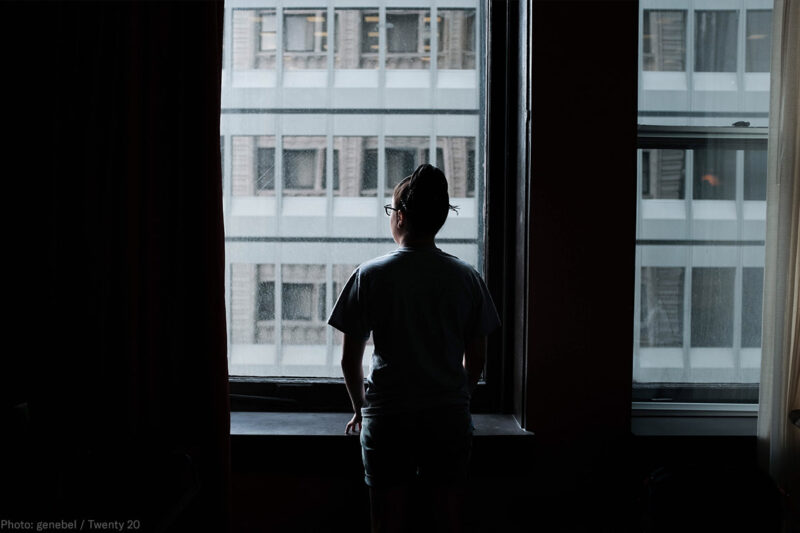
Before there was Christine Blasey Ford, there was Recy Taylor, an African-American woman who was raped by six white men in 1944 and fought for justice with the help of Rosa Parks. And in between the two of them, there was Anita Hill, Tarana Burke, Alyssa Milano, Lupita Nyong’o, Tanya Selveratnam, Aly Raisman, and many, many more.
For centuries, women have experienced violence and harassment, and many have spoken out. #MeToo brought us to a new phase in building the movement to end gender-based violence, magnifying and connecting thousands of voices as they shared their stories. Despite women’s achievement of formal equality, #MeToo exposed how common such violence is, the widespread silencing and dismissal of survivors, and the myriad ways violence undermines survivors’ security, dignity, and opportunities.
The President and Senate Judiciary Committee are far from the only powerful people and institutions that limit investigations, disbelieve survivors, and fault people for coming forward. Discrimination against survivors infiltrates all aspects of life, including the responses of law enforcement, employers, housing providers, and schools, to name a few. Speaking out about violence is a crucial step. But law enforcement, employers, housing providers, and schools must also step up and acknowledge how their policies and practices contribute to violence.
“Why didn’t you report?” is the refrain so many survivors face when they disclose violence for the first time. But too often, police dismiss survivors who go to law enforcement. This attitude results in governments’ decisions not to test thousands of rape kits in cities like Detroit, Albuquerque, and Washington DC, based on officers’ assumptions that there was no sexual assault. It also explains why one in three survivors feel less safe after contacting police.
Survivors also bear punishment for filing complaints. They are ostracized by their communities or accused of lying and prosecuted for false reporting, only to be exonerated years later. Sometimes cities enforce policies that hold victims responsible for crimes in their homes, resulting in their eviction.
Survivors are frequently denied employment, educational support, housing, and other benefits due to violence and harassment. They are retaliated against by supervisors for breaking their silence. Schools ignore their requests for accommodations or protection, pushing them out. Landlords evict them for resisting sexual demands. Veterans seeking disability benefits based on PTSD as a result of military sexual trauma are rejected unjustly, because they cannot meet a standard of corroboration that is not demanded of veterans with other forms of PTSD.
And victims have gone to law enforcement only to face sexual harassment and assault by officers themselves. Filling a criminal report can subject survivors to further violence, committed by those who are supposed to hold perpetrators accountable.
The multiple layers of discrimination that survivors experience, and the network of systems that foster it, could leave one feeling hopeless. But what we saw with so many of the survivors who have spoken out is that they are challenging the institutions that further perpetuate violence. In telling their stories, they are survivors, and also advocates and leaders pushing for change.
I have witnessed this first-hand as an attorney at the ACLU representing survivors of gender-based violence. I have been awed by Lakisha Briggs, Nancy Markham, and Rosetta Watson, who are all survivors of domestic violence who either faced eviction or were evicted because they called 911. They successfully challenged local nuisance laws adopted by their cities in Pennsylvania, Arizona, and Missouri, ensuring that other survivors no longer are forced to choose between their homes and police protection.
I had the honor of working with Rachel Bradshaw-Bean, a student in Texas who was sent to a disciplinary program for engaging in “lewd behavior” after she reported being sexually assaulted at her high school. She filed a Title IX civil rights complaint against the school district, leading to major reforms for how they respond to sexual harassment and violence. And this month, PBS is featuring the Home Truth documentary on the life and work of Jessica Lenahan, a Colorado woman who became a human rights activist after Colorado police refused to enforce her restraining order against her ex-husband, leading to the death of her three daughters.
Our society is one that has long accepted and encouraged the victimization of women and other marginalized people. Today, survivors are building power by coming forward, seeing and hearing each other, calling on and providing support, and challenging the norms that have silenced victims. We will continue our work to dismantle the policies and practices that have allowed violence and discrimination to flourish.
Every day across the nation, the ACLU is called on to defend all the freedoms guaranteed in the Constitution and the Bill of Rights. There's never been a more important time for to support the ACLU and our effective work to protect civil liberties. If you like what you just read, help us continue to speak freely by donating today.


